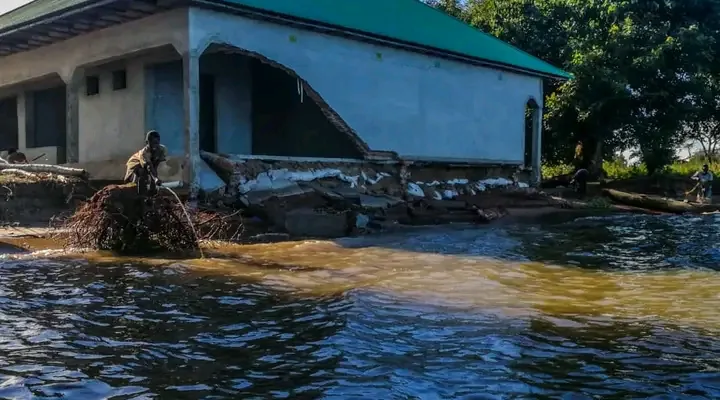
Business people who ply their trade on the shores of Lake Malawi in Karonga district say they are making losses due to the swelling of the lake which is affecting their businesses.
In an interview on Wednesday, Paul Ndhlovu, who operates Blue Beach Bar, a popular spot located along the lake said water has overflowed blocking roads leading to the place and causing damage to infrastructure.
Ndhlovu said: “The situation has worsened ever since heavy rains started falling in the district in March. Water has overflowed to our place of business and some structures have collapsed as they are now submerged in water.
“In the dry season, we used to receive a lot of customers but now as few as 20 people are coming to our establishment because all roads that lead here have been blocked,” he added.
A fisherman, Victor Nhyasulu, complained that continuous heavy rains are making it hard for them to go for fishing expeditions on the lake.
“Most fishermen are not fishing due to the rains and this has led to a rise in fish prices since the supply is low. Heavy rains have also increased post-harvest loss because some fish stalls have been submerged in water making storage of fish very difficult and we are making losses,” Nhyasulu said.
Acting Fisheries Officer for Karonga District Council, Patrick Moyo, echoed Nhyasulu’s sentiments, saying most landing sites have no shelters or store rooms where business people can keep their processed fish.
“Lack of proper shelters or store rooms increases the rate at which processed fish is attacked by molds and produces bad odor which eventually leads to low prices or the fish is thrown away all together.
“This time we are happy that the Sustainable Fisheries, Aquaculture Development and Watershed Management (SFAD-WM) project is constructing landing facilities in areas where active fishing is done like Kapoor, Chipamira, Ngala, and Chilumba,” Moyo said.
According to a memo released by the National Water Resources Authority, as of 11 March, during the 2023/2024 hydrological year, Lake Malawi’s water level is at 475.95 meters above sea level (masl).
Last year it was at 475.12 masl on the same date representing an 83 centimetre increase in water levels.
“Lake Malawi waters reach a peak between April and May each year and this hydrological year, the lake levels have taken the highest trajectory since 2010. The increase has been attributed to increased rains in the Northern Region of Malawi and Tanzanian side which constitute the main catchment area of Lake Malawi,” reads the memo.
By George Mponda














